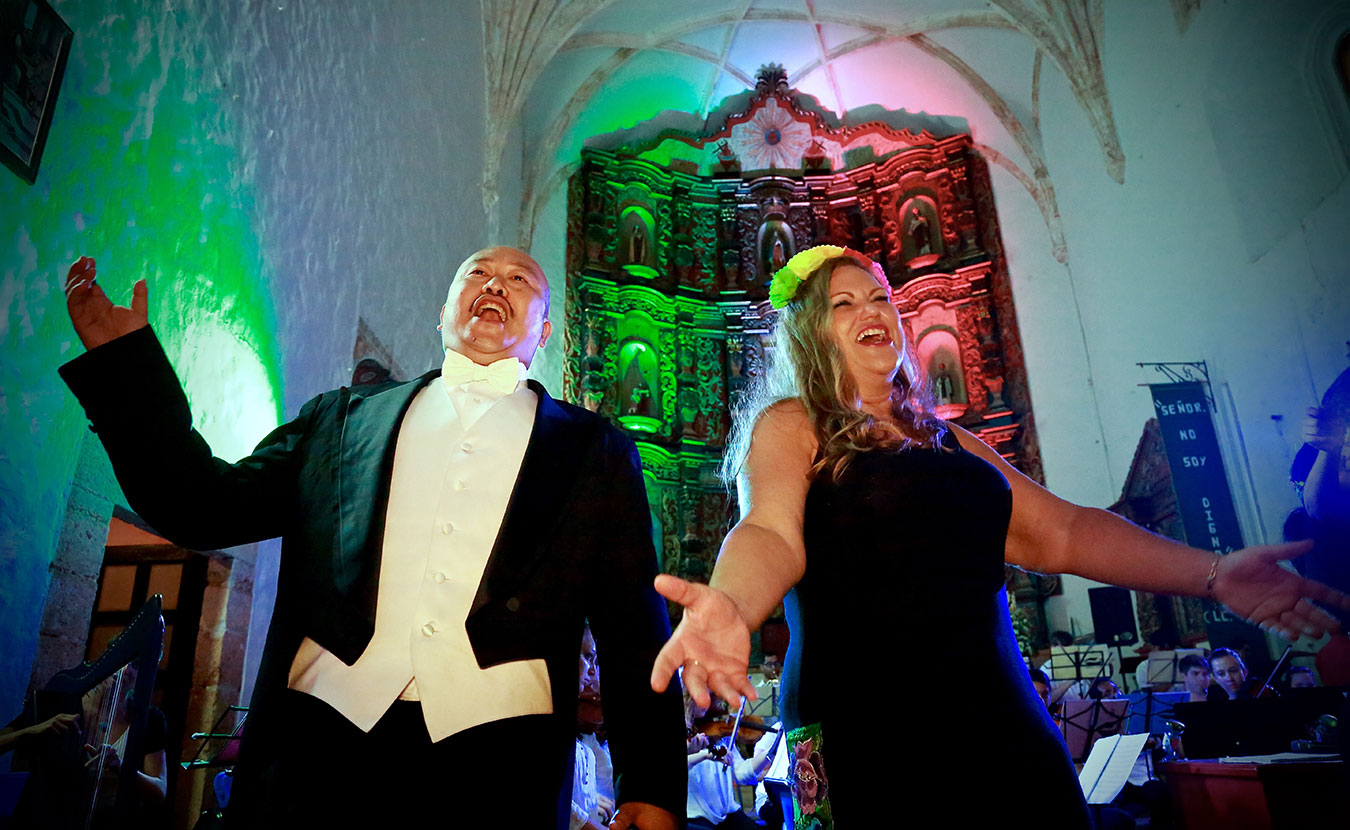Despite more than 6 million native speakers in Mexico, Belize, Honduras, and Guatemala, Maya is a living, breathing language that most Americans don’t even know exists. Yucatecan Maya, just one of 700 distinct Maya languages, is spoken by more native speakers than Gaelic. When Mary Grogan, the creator and director of ÓperaMaya, told me this, I was shocked.
Like many Americans, I tend to clump the Maya with the Mesopotamians or the Romans: ancient people from cultures that disappeared thousands of years ago. Grogan says that, thanks to some irresponsible retellings of history, this is a common misconception. By creating the ÓperaMaya summer training program, Grogan works to create a cultural exchange to teach the Maya about opera, while teaching the people of the U.S. about the unique, vibrant Maya culture.
ÓperaMaya began during what Grogan calls a “What am I doing with my life?” moment. After earning a graduate degree in opera from the Indiana University Jacobs School of Music, Grogan moved to Mexico to pursue a career in opera. She soon discovered a huge snag in her plan: “There was no opera happening there,” she says. “There was literally none.” Disappointed, she returned to Bloomington, and the idea of ÓperaMaya began to grow.
Grogan’s initial plan for ÓperaMaya was to create an opera summer training program in Mexico. Every summer, professional and aspiring opera singers participate in summer training programs to better their art, learn different techniques, and make connections in the field. The majority of these types of opera programs are held in Europe and the United States — not surprising considering opera’s aristocratic, European roots. Grogan’s hope for ÓperaMaya was to expose singers and musicians to the culture of Mexico while also bringing opera to parts of Mexico where it had never been performed.

Grogan created the ÓperaMaya summer training program as a cultural exchange to teach the Maya about opera while teaching the people of the U.S. about the unique, vibrant Maya culture. | Courtesy photo
ÓperaMaya’s first summer training program took place in 2010 and included 25 singers, including some IU faculty. The organization has grown beyond just a summer training program for opera singers over the past seven years, due to Grogan’s passion and persistence. Grogan wanted her own orchestra; she made her own orchestra. She wanted to emphasize community outreach; ÓperaMaya toured, festival-like, all over the Yucatan Peninsula, performing opera in places and communities that had never experienced the art form. She wanted to find operatic works in the vernacular; ÓperaMaya now hosts a contest for original operatic compositions in Maya.
Even though so many people speak Maya, the language is looked down upon in Mexico. “Maya are discriminated against,” says Grogan. “When you call someone a Maya, it’s a bad word. It’s, in essence, calling someone stupid, ugly, smaller, less-than. The Maya have been taught to be embarrassed to speak their own language in front of others.” By creating operatic works in Maya, ÓperaMaya participates in a growing movement to recognize, embrace, and promote Maya culture in the Yucatan Peninsula — inspiring positivity and pride in the Maya for their language and culture — a “most unexpected side-effect,” says Grogan.
At home in Indiana, Grogan raises Bloomington’s awareness of the Maya culture. Recently, ÓperaMaya partnered with the Center for Latin American and Caribbean Studies (CLACS) at Indiana University. IU is one of only three universities in the United States that teaches Yucatecan Maya.
As a part of this collaboration, on February 22 and 23, ÓperaMaya and CLACS will present Viva, a two-day celebration of Maya culture. Viva will feature poetry by Wildernain Villegas Carrillo, an advocate for Maya language who has won national prizes in Mexico for his poetry in Maya.
Viva will also include the premiere of Já’ Káax, an operatic composition in Maya by Luis Ruelas, a graduate student in the Jacobs School of Music. Já’ Káax is the winner of ÓperaMaya’s 2017 composition competition and was inspired by Carrillo’s poem of the same name. The performance will include soprano soloist Malina Rauschenfels, conductor Piotr Wisniewski, and IU’s Latin American Ensemble Orchestra.
Grogan hopes that over time the ÓperaMaya and CLACS collaboration will produce more and larger events celebrating Maya culture in Bloomington, inspiring curiosity and appreciation for, specifically, the Maya people and, more generally, our Mexican neighbors.


